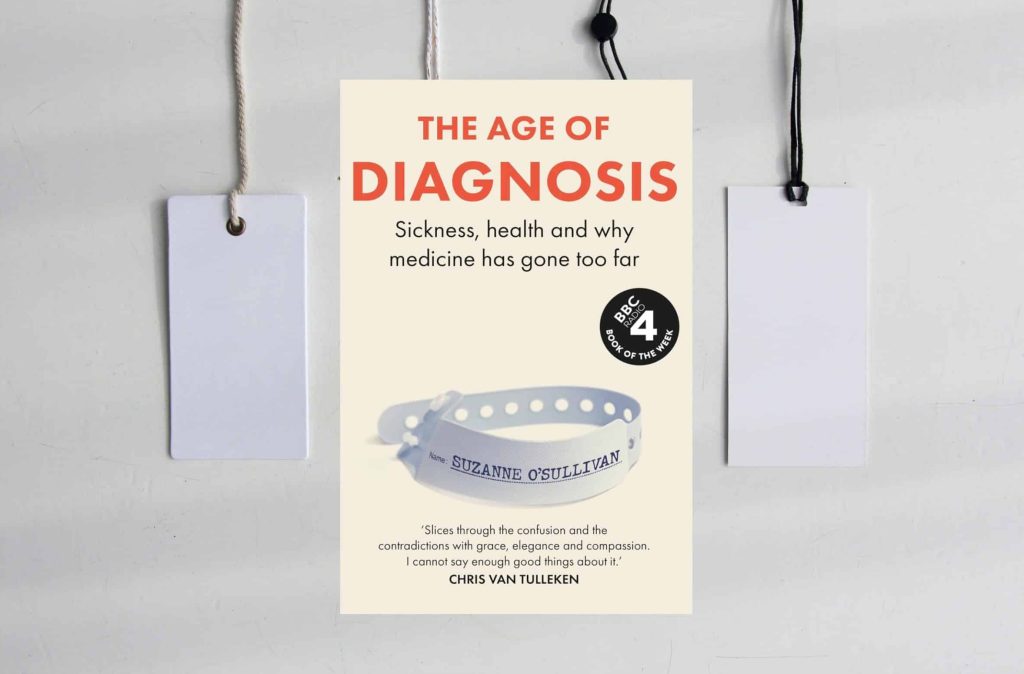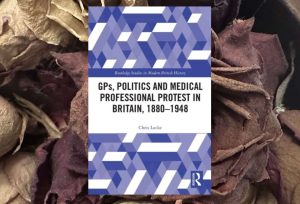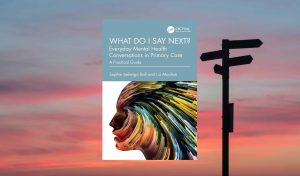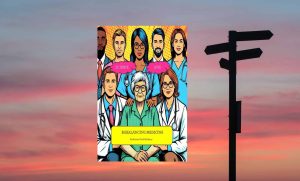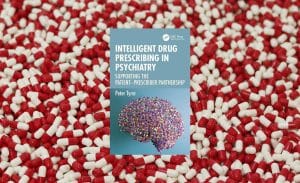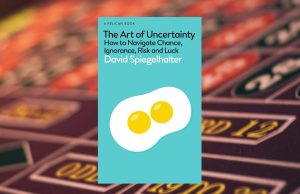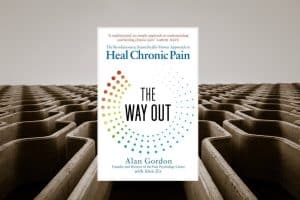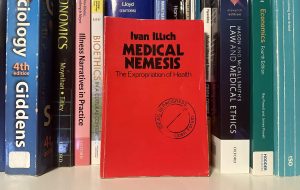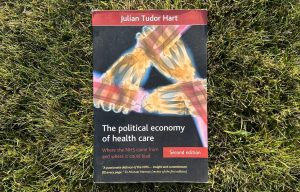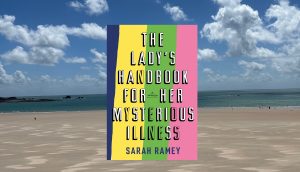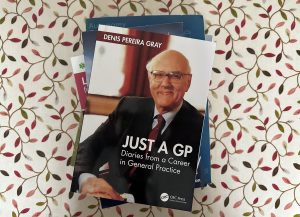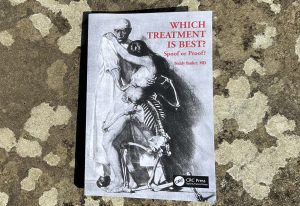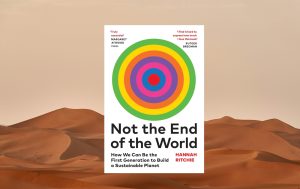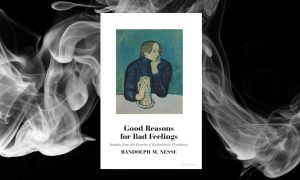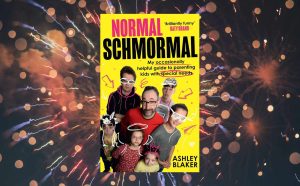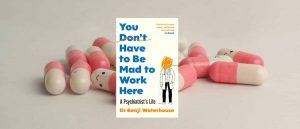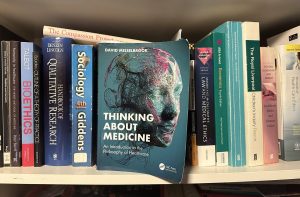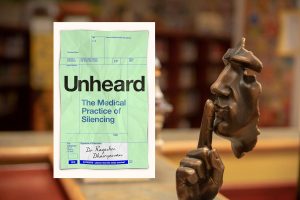O'Sullivan and others fail to recognise the likelihood that most Long Covid patients will have already tried psychological and behavioural approaches ... the idea that there might be issues that, if addressed, could cure you, is the only thing we have left.
Using a combination of a candid personal memoir, philosophy and her expert knowledge of ancient Greek tragedy, Edith Hall discusses neglected topic of the consequences of suicide.
As Chris Locke demonstrates in his timely analysis of GPs, politics and the medical professional protest in Britain 1880-1948, GP's concerns about insufficient pay, workload, not being valued and fears that independence will be taken from them are not new.
"it was wonderful to attend the launch of Nicky Carter's first book of poetry, The Ghosts of A and E, in Liverpool a few weeks ago. Hearing them read by the author was a real privilege and took us all to those
"It raises timely questions regarding the concept on a 'use by' date to a life. It stirs in us the realisation that despite not having 'capacity' to make decisions about medical or financial affairs, a patient may nonetheless be immersed in a
In John Walker Smith's poetry the reader is drawn into the narrative through his conversational approach which permeates the prose.He aims to speak to the reader and offers avenues for reflection, providing comfort and counsel.
Perhaps it is my patient population, my personality or perhaps it is true of all General Practice, but I notice that nearly all my consultations touch on mental health in some way. Whilst reading the book, I have managed to accept the
"It is a humbling, funny, graphic, lewd, and humane account of the enduring will to live and to thrive." – Maryam Naeem reviews Shattered by Hanif Kureishi
Rebalancing Medicine can seem an impossible task. This book describes, often from personal experience, how the political fashions of the last decades first facilitated and then debilitated the essential workings of the NHS. Richard Lehman reviews.
"This is the article where I pick out some seasonal reading that is modestly sized and modestly priced such that it might fit in the standard proverbial Christmas stocking ..."
"In this thoughtful monograph, Peter Tyrer argues for a via media between the perspectives of those who consider drug therapy to be an essential element of psychiatric practice, and those who are concerned that the massive increase in psychotropic prescribing that we
The science of medicine is a triumph of the intellect and has done immeasurable good. But applied to the individual in distress, it shows all its immeasurable weakness. Not all of David Spiegelhalter’s magnificent new book deals directly with this, but where
"This book is terrifying, informative, stimulating, and educating to every member of the medical and nursing profession. It is extensively researched, has a massive bibliography, and, most importantly, it is well written and well worth reading — in spite of some truly
Re-reading my review, I can tell that I was very careful even then not to present this approach as a 'cure' for Long Covid, but as a promising approach to manage symptoms better while waiting for a cure ... However, I have
"If you only ever read one book about emotions, make it this one." –
a book which has had the same impact on the language of healthcare as George Orwell’s 1984 has had on the language of politics. Illich did not invent terms such as iatrogenesis and medicalisation, but he was the first to synthesize them
"This is not a book to read once, skim, or leave on a shelf. It's both an introduction and a practical guide to taking action. It explains where we are today and what we need to do next. The best time to
We all need to help each other to understand how neurodiversity makes people feel and this is the ideal book to do that. Written in the first person, the protagonist describes routine activities and life events affecting her as a single mum
Arthur W. Frank now turns his attention to Shakespeare’s King Lear, acknowledged to be one of the greatest books in the English language, and combines perceptive psychological insights with their application to the experience of serious illness.
“Language is so important – and this is a thread throughout the book. Philippa describes the relief of her son being given a diagnosis of schizophrenia – this highlights what we all understand – that a label or diagnosis can be so
John Launer had had never heard of Edogawa Rampo until he bought “Beast in the Shadows” on impulse in an airport bookshop.
I am immensely grateful that I was fortunate enough never to have made any major blunders with children’s care in my career. But I would have slept better had I read this book.
This book is a moving, autobiographical account of prolonged childhood abuse.... It tells us that we must listen to the voices of children and young people, take their concerns seriously, and respond appropriately.
Tudor Hart’s warnings of what might happen in the health system from 2010 reach us in 2024 in the form of accurate predictions. Read this book if you’re interested in better clinical care, better health policy and a better society, even if
This book is intended to fill a gap for health and social care practitioners working in prisons, and cites current evidence to back up much of the narrative and recommendations – but does it try to do too much?
Phil Whitaker reviews 'John Berger: Ways of Learning' by Iona Heath, a "[compilation of] letters, quotations, and reminiscences from her 20-year friendship with John Berger" ...
"Dysautonomia, an invisible illness, may be one of the most misdiagnosed medical conditions of all time .. " – Elke Hausmann reviews The Dysautonomia Project - Understanding Autonomic Nervous System Disorders for Physicians and Patients.
This is a gripping story of two remarkable families, a remarkable heart and a remarkable organ donor system, faultlessly told. There will, I am sure, be a film of the book.
The author tells us that 'mysterious illnesses' are complex and complicated, very individual, definitely not in the patient's head (though attention to one's psyche can be beneficial), but in her body, and, importantly, in the culture she lives in...
Anyone currently working in general practice who is, or aspires to be, an effective influencer should read this to learn what it takes to make the changes to improve health care. It also explains what has often been lost from the institutional
The Wild West of medicine - a history for doctors’ feels like a more honest title for a book that makes interesting and informative reading.
The authors describe GPs as ‘street level bureaucrats in that we simultaneously enact the dictates of ‘tyrannical officialdom’ whilst addressing the needs of our clients. They offer a narrative account of the daily realities of British urban general practice and reflect on
Hannah Ritchie takes a clear-eyed view to understand how we got where we are, what the real problems are, and what we should be doing to build a truly sustainable world. Throughout Ritchie supports her arguments with evidence and data. Terry Kemple
In 'Good Reasons for Bad Feelings', Randolph M. Nesse offers a fresh perspective on anxiety and depression in modern day living – that of evolutionary medicine, specifically evolutionary psychiatry.
This book would resonate with parents of neurodiverse children and help them feel less alone, but I also think it is a funny and kind explanation for people who don’t have experience living with SEN or neurodiversity. With the increase in general
Dr Benji Waterhouse provides a fly-on-the-padded-wall account of life as an NHS psychiatrist. He describes the bedraggled NHS we recognise all too well in this memoir...
Misselbrook masterfully uses the tools of philosophy to explain to us how we think the way we do, how we can think more clearly. In a political climate dominated by polarising and often poisonous rhetoric, bullshit-detection skills are the least of what
The practice of silencing is unjust and unfair, but probably universal in medicine. Trisha Greenhalgh reflects on a 'powerful' new book that is packed with compelling patient stories and accessible summaries of the academic literature. And for the teachers and trainers among
A 'potteres-que' educational experience? Elke Hausmann reviews a long running Saturday course in the history of medicine run by one of the UK’s historical medical institutions.
Terry Kemple reviews the latest book by James O’Brien, a writer and broadcaster who hosts a popular daily current affairs programme on LBC radio. O'Brien chooses ten influential individuals with their facilitators and allies to blame for the current dismal state of

